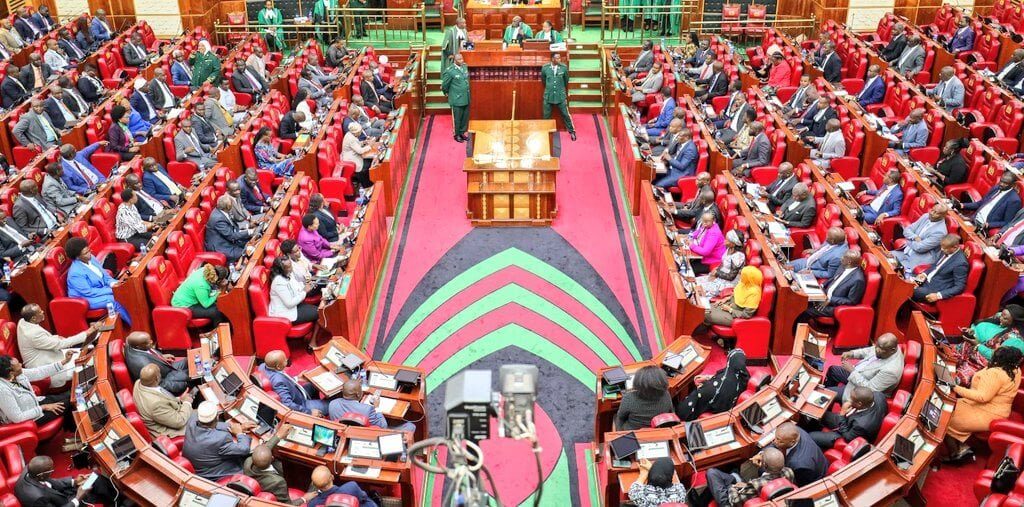|
LISTEN TO THIS THE AFRICANA VOICE ARTICLE NOW
Getting your Trinity Audio player ready...
|
The High Court Friday, February 7, 2025, nullified National Assembly Speaker Moses Wetangula’s decision to declare Kenya Kwanza the majority coalition. The court found that the Speaker acted unconstitutionally when he assigned 14 MPs to Kenya Kwanza in 2022, tipping the scales in favor of President William Ruto’s political camp.
The judgment delivered by Justices John Chigiti, Lawrence Mugambi, and Jairus Ngaah, invalidated the Speaker’s determination, calling it a violation of constitutional principles meant to safeguard parliamentary impartiality.
The case stems from a controversial ruling made by Speaker Wetangula on October 6, 2022, barely two months after the general election. Following a closely contested election, the National Assembly was deeply divided, with Azimio la Umoja One Kenya coalition party entering the House with a numerical edge. However, defections from smaller parties led to confusion over which coalition held the majority.
In his ruling, Wetangula counted the 14 defecting MPs as part of Kenya Kwanza, bringing its numbers to 179 against Azimio’s 157. This decision cemented Kenya Kwanza’s dominance in the House, allowing it to control key parliamentary committees and legislative processes.
However, official records from the Office of the Registrar of Political Parties contradicted this move. As of April 21, 2022, Azimio consisted of 26 political parties, while Kenya Kwanza had only 15. Legal experts and opposition figures argued that Wetangula’s ruling ignored pre-election coalition agreements, which legally bound certain parties to Azimio.
The three-judge bench ruled unanimously that Wetang’ula had no legal basis to unilaterally reassign MPs to Kenya Kwanza. The court said that his role as Speaker required strict neutrality and that he had overstepped his authority.
“The Speaker’s function is not to override legally binding agreements. His decision lacked justification and violated constitutional guidelines,” the ruling stated.
The court further noted that the Speaker could not disregard the Registrar of Political Parties, who is the official custodian of coalition agreements. The judges ruled that Wetangula should have presented verifiable post-election agreements to justify his decision.
“The Registrar could not provide what she did not have,” the judges stated. “Without proper coalition agreements, the Speaker’s ruling was legally untenable.”
In addition to overturning his ruling on majority status, the court made another critical determination—declaring Wetangula’s continued leadership of Ford Kenya while serving as Speaker unconstitutional.
“The Speaker cannot simultaneously lead a political party and claim to be an impartial presiding officer in Parliament,” the judgment read. “Upon assuming the Speaker’s role, he automatically ceased to be the leader of Ford Kenya.”
This ruling sets a precedent that could affect future Speakers who hold political party positions while leading Parliament.
The decision has significant consequences for Kenya’s political landscape. Kenya Kwanza’s majority status had allowed it to dominate legislative affairs, influence committee appointments, and push through critical policies. With the ruling nullifying this status, a realignment in Parliament may be imminent.
It also raises questions about the legality of past decisions made under the disputed majority. If Parliament is forced to reconsider key rulings made under Kenya Kwanza’s assumed dominance, the government’s legislative agenda could face setbacks.











LEAVE A COMMENT
You must be logged in to post a comment.